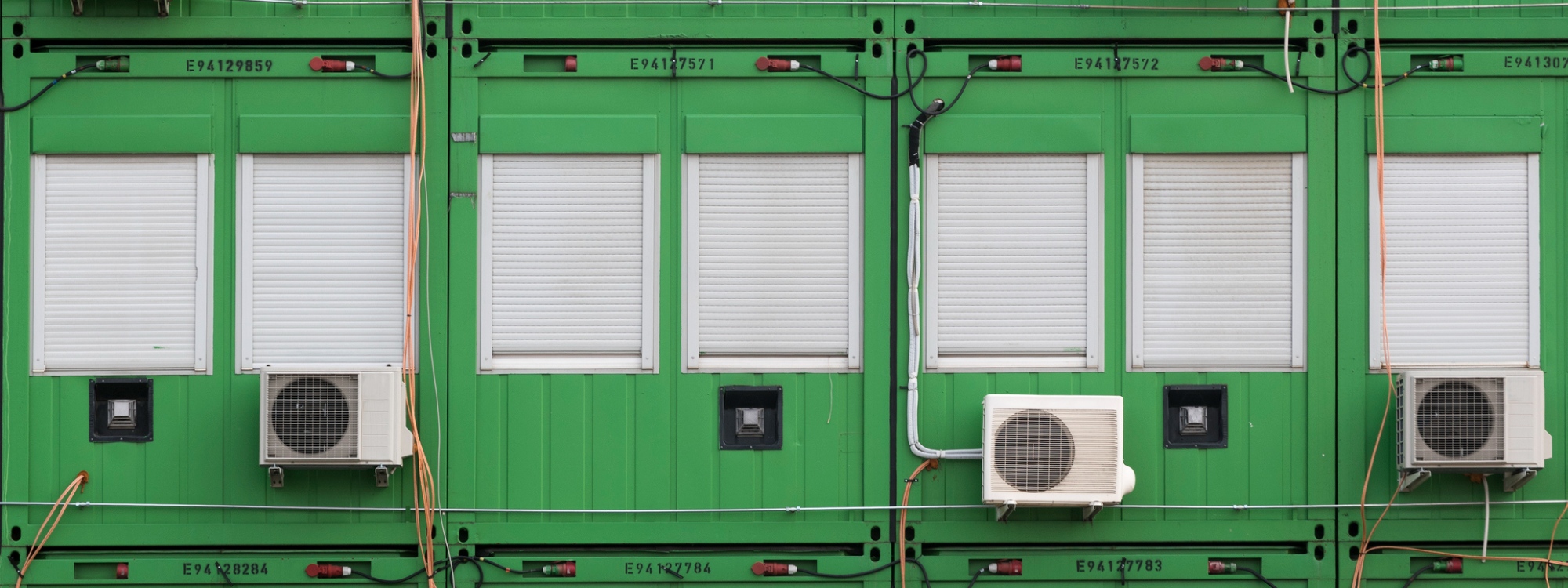The planet is warming. Let’s cool it together.
Our mission is to transform the cooling sector by reducing its greenhouse gas emissions and making efficient, climate-friendly cooling accessible to all.
The Clean Cooling Collaborative is a philanthropic initiative of ClimateWorks Foundation that is working to create a future with efficient, climate-friendly cooling for all.
The cooling sector requires a transformative change to sustainably provide people with access to the cooling they need in a rapidly warming world. Together, we must achieve this in a way that reduces energy use and avoids highly polluting refrigerants. If we get cooling right, we could prevent the emission of 100 gigatons of CO₂e over the coming decades[1]Solving the Global Cooling Challenge: How to Counter the Climate Threat from Room Air Conditioners (2018), RMI. That’s equivalent to two years of today’s global greenhouse gas emissions.
The cooling challenge
As global temperatures rise, demand for cooling — primarily air conditioning and refrigeration — is expected to triple by 2050[2]Air conditioning use emerges as one of the key drivers of global electricity-demand growth (2018), IEA. Unfortunately, today’s cooling technologies consume massive amounts of energy and release super-polluting greenhouse gases, damaging our climate and warming the planet.
Today, cooling produces more than 7% of the world’s greenhouse gas emissions[3]Optimization, monitoring, and maintenance of cooling technology (2018), K-CEP, and without clean cooling technologies and a complete renewable energy transition, these emissions could double by 2050[4]The Future of Cooling (2018), IEA.
Cooling is also an important development and equity issue. The combination of extreme heat and a lack of access to cooling threatens the health and safety of people worldwide, as well as the quality and safety of food and critical medicines that rely on refrigeration.

Solutions to cool a warming world
To meet the growing demand for cooling, we must scale up the adoption of affordable, energy-efficient, and climate-friendly solutions that support health and well-being with minimal greenhouse gas emissions.
Improving how we cool will also support the clean energy transition, save trillions of dollars in utility bills and investments, boost food security, and enhance the quality of life for people everywhere.
To achieve these goals, our portfolio supports efforts that:
• Raise the profile of — and resources for — efficient, climate-friendly cooling as a core climate mitigation, development, and equity opportunity
• Avoid and reduce the need for mechanical cooling through improved building design, urban planning, and other passive cooling solutions
• Optimize and improve mechanical cooling technologies and how they’re used to be more energy-efficient, climate-friendly, and grid-friendly
• Increase access to efficient, climate-friendly cooling for low-income, heat-vulnerable communities.


